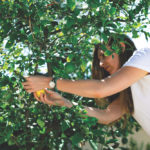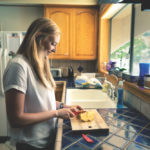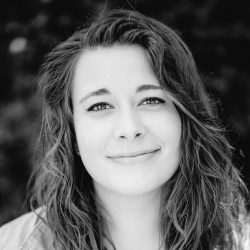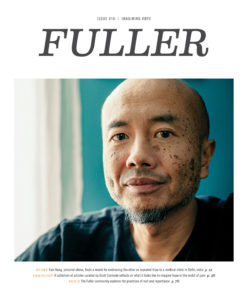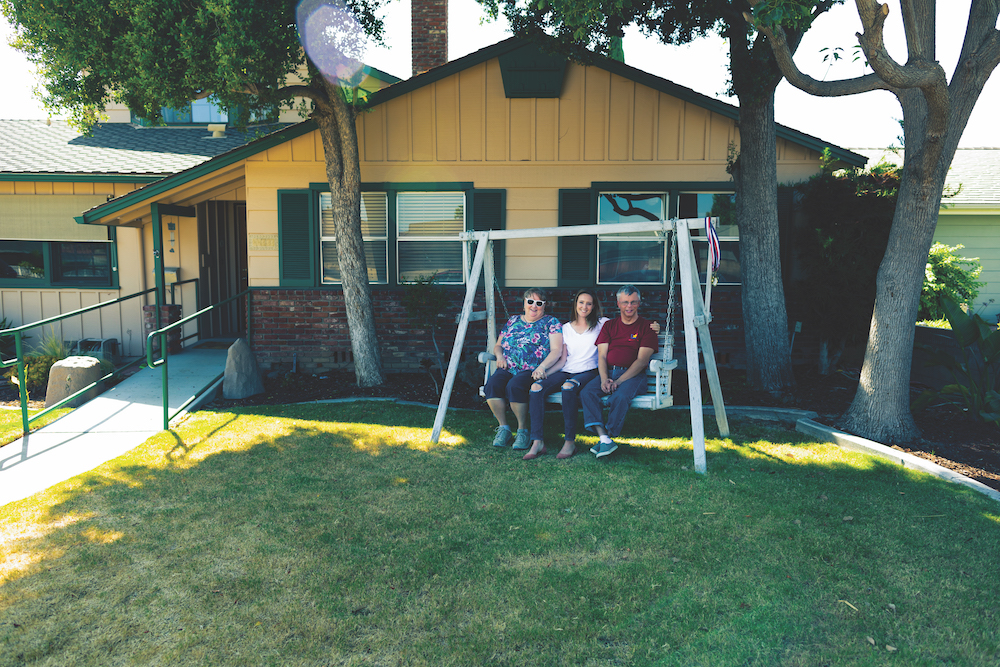
“It’s no picnic having a disability. You’re only too aware that you’re different from everyone else, and not everyone is very accepting,” says Cathy to Cara Vezeau (MAICS ’17) as the two speak about Cathy’s experiences while having tea in their shared kitchen. Cara is a live-in resident at L’Arche Wavecrest, where she shares the load of everyday tasks around the house and spends relational time with core members like Cathy. “Core” comes from the French coeur, meaning heart, emphasizing that life here revolves around these members of the community.
L’Arche Wavecrest is one of over 150 communities like it worldwide under L’Arche International. The organization was birthed in France in 1964 by Catholic philosopher and theologian Jean Vanier, who was deeply distressed by the conditions of French asylums, which hid away people with intellectual disabilities in sordid conditions. Vanier decided to purchase a home and proceeded to invite two men, Raphaël Simi and Philippe Seux, to leave their institutions and live with him there instead. The home was named L’Arche—“The Ark” in English—and became a community for people with and without disabilities learning to live intentionally together. In the decades since, L’Arche has grown into an international movement. And while L’Arche Wavecrest in Orange is currently the only one in the state, plans for other California locations are in the works. Cara has lived in the house since 2018.
“This was not my trajectory,” says Cara, who didn’t plan on studying disability when she chose to attend seminary. “I keep asking myself, ‘How did I get here?’” An Indiana native, Cara came to Fuller because of a passion for international missions, which she still very much holds. Her experiences over the years, however, had her continually confronting the reality of disability, compelling her to think about how disability spoke to her ministry and theology.
Long before she’d known about L’Arche, in the year after graduating from college, Cara found herself back in her hometown looking for work. She landed a position as a special education paraprofessional at her old middle school, while simultaneously working in ministry under Youth for Christ—at the very same school. Cara spent mornings running Youth for Christ clubs and afternoons with her special needs students. It didn’t take long for her to feel the gap between the two. “This was my first time really recognizing there was a divide,” Cara admits. “One of my special needs students came into our club once. He had autism, and he walked around at the back of the room. I was at the front. No one said hi to him. He sat down and didn’t know how to participate. Then he left,” she says. “I’ve always wondered if the atmosphere was too loud and too stimulating. One way or another, the ministry I was doing had no place for him.”
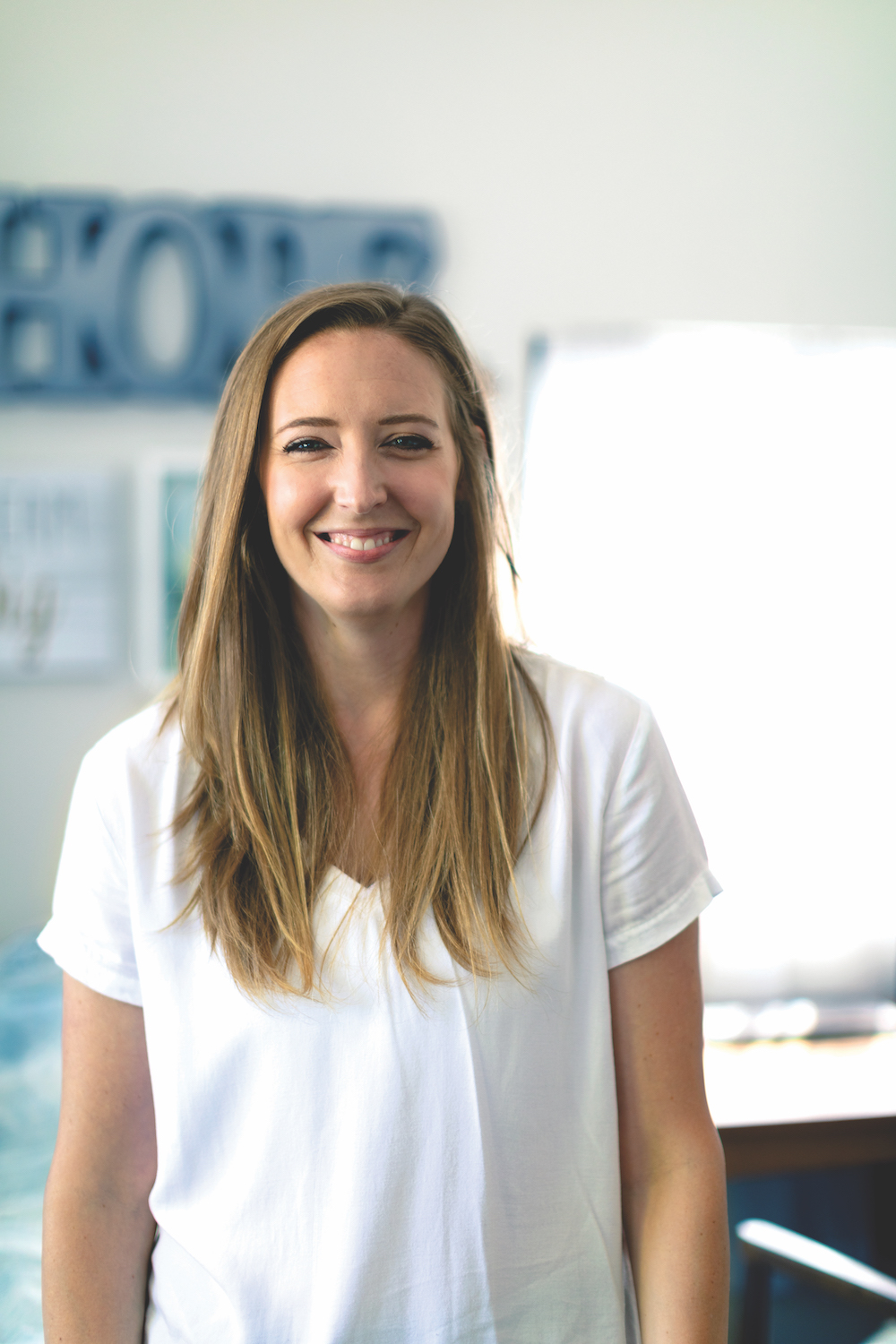 Later on, after Cara had spent some time teaching abroad and solidifying her decision to attend seminary to study mission, she returned home to Indiana and had another pivotal moment. She’d begun taking Fuller classes online in preparation for moving to Pasadena and balanced her schedule with another paraprofessional position—this time at an elementary school. In one of her courses, Cara was assigned a paper on “theology in my context,” and she decided it would make sense to write about her special needs classroom. “It was so eye-opening for me. It was the first time I’d thought about salvation and what that looks like for someone without words, because most of my students could not verbalize in that way. I was kind of questioning the whole system,” she says of the traditional concept of salvation through the recitation of a prayer. How much, Cara wondered, did traditional theologies miss by overlooking people with different levels of cognitive ability?
Later on, after Cara had spent some time teaching abroad and solidifying her decision to attend seminary to study mission, she returned home to Indiana and had another pivotal moment. She’d begun taking Fuller classes online in preparation for moving to Pasadena and balanced her schedule with another paraprofessional position—this time at an elementary school. In one of her courses, Cara was assigned a paper on “theology in my context,” and she decided it would make sense to write about her special needs classroom. “It was so eye-opening for me. It was the first time I’d thought about salvation and what that looks like for someone without words, because most of my students could not verbalize in that way. I was kind of questioning the whole system,” she says of the traditional concept of salvation through the recitation of a prayer. How much, Cara wondered, did traditional theologies miss by overlooking people with different levels of cognitive ability?
When she moved to Fuller’s Pasadena campus, Cara’s classes focused largely on missiology and intercultural studies, but she found herself engaging with issues of disability in her papers and assignments whenever she could. With scholars like Amos Yong and Bethany Fox, Cara says Fuller was a good place to learn about how disability played a role in every culture and context. As her passion and knowledge around the topic grew, friends began to introduce Cara as a student emphasizing in disability studies. This makes her laugh because, she exclaims, “that isn’t even something Fuller offers!”
Yet Cara insists, “This wasn’t on my radar as something to focus on.” She hadn’t so much felt called to an academic study of disability as much as she felt compelled to learn about what it meant to be a Christian alongside the people and community around her. During her time in seminary, she was a member of a church small group in which adults with disabilities were key members. Disability for her was never only a subject on a page.
Cara learned about L’Arche Wavecrest through Fuller’s faith and disability student group, when the group hosted a trip to visit the community. She stayed in contact. Later on, when the live-in resident position opened up, Cara applied.
For the most part, Cara’s role involves daily tasks for and around the house—grocery shopping, cleaning, and meal prep. She also helps coordinate regular outings and events like their monthly prayer night. But most importantly, she explains that being part of L’Arche comes down to living life together in community.
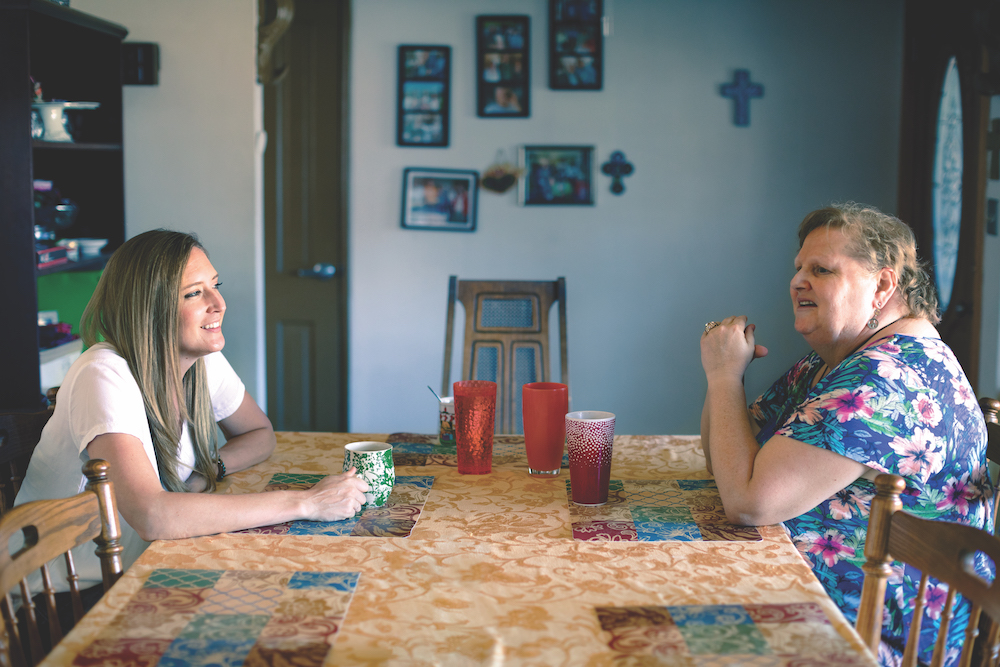 “An essential part of L’Arche is sitting around the table,” she explains. Smiling, she goes on to tell a story of a recent dinner they’d had at the house: “The other day, Cathy finished eating really quickly and went right back to the TV. I said, ‘What are you doing? We eat dinner together every day.’ And she said, ‘I know! Every day!’ like she was so tired of it!” Cara laughs and says, “This is what we do.”
“An essential part of L’Arche is sitting around the table,” she explains. Smiling, she goes on to tell a story of a recent dinner they’d had at the house: “The other day, Cathy finished eating really quickly and went right back to the TV. I said, ‘What are you doing? We eat dinner together every day.’ And she said, ‘I know! Every day!’ like she was so tired of it!” Cara laughs and says, “This is what we do.”
Cathy, who is very involved in a local arts program, has lived at L’Arche Wavecrest for about 10 years and is one of four current core members. Jazz has been at the house for over six years, and John has been a core member for a little over four. Chris arrived 15 years ago, when the house was founded. Chris’s family, Cara notes, relocated from out of state so that he could live here. His Catholic family prioritized faith, and L’Arche’s cornerstone of spirituality was an important draw for them. Cara explains how this dimension of faith shapes L’Arche as a unique place compared to other group homes, as it sincerely positions core members as the heart of the community. This sentiment is evidently felt. Chris says, “I love being here. I plan to stay forever!” And L’Arche is Cathy’s “favorite place she’s ever lived,” according to Cara.
Cara says what she’s heard and seen of some other homes can be dreary. And abuse, in various forms, is all too common. Cathy, who lived a few places before coming to L’Arche, says, “When you’ve lived in several group home situations, you’re able to compare things. Like the staff always looked down upon you, and you were less than they were. Those group homes were basically a business rather than a family. Here, they don’t look down at you. They don’t think they’re any better than you are.”
Despite L’Arche doing good work to model faith engaging with disability, however, Cara laments that the church as a whole still suffers great deficiencies when it comes to relating to and including people with disabilities. “It feels like the church is behind in thinking about these things,” she says. Cara thinks specifically of the rigidity of our expectations when it comes to Sunday mornings and worship services. She asks what it would look like if people were okay with their church programs not going as planned. “Are you okay with—and I’m going to use quotes here—‘disruptions’? Are we ready to invite people in who are going to ‘ruin’ our regular menu of worship?” Cara brings up children with disabilities, for instance, saying, “It’s really hard for parents to bring their children in, feeling like it might disrupt the service. I keep using the word ‘disrupt,’ but it isn’t that. We have routines and schedules, but sometimes we just have to say, ‘Not today, it’s not gonna work today.’”
She recalls the small group she’d had at her previous church, and how they often deviated from their schedule—instead letting the evening revolve around its members with disabilities. “Sometimes we just did music forever, and they did spontaneous singing or dance. That was very unique and very beautiful.” Cara ended up at her current church because of how kindly everybody engaged with the core members when she brought them to visit—“It was so refreshing to see,” she says.
Cara admits that difficult situations do come up. She talks about a friend who caused a big stir in the middle of a service once. The way some at the church responded still concerns her. She struggles with what appropriate action looks like when complicated scenarios like that one arise, but she says we cannot form our responses lightly and without being deeply informed.
“Disability is so important for the church to think about,” she says, without pushing the onus off of herself to keep learning more: “I’ve become very passionate about this, but I don’t feel very knowledgeable. I don’t have a special education degree. I’ve had experience with some varying diagnoses or different abilities—however you want to say it—but there’s so much out there.”
Living at L’Arche has been a season of learning for her. And doing life alongside Cathy, Chris, Jazz, and John continues to shape her. Presence itself has power, Cara says. She thinks back on an early memory of when her father was her youth pastor. One of the boys in the group had autism and would often stand at the back of the room, shouting and making noise. “My dad insisted he be there. He said, ‘He’s going to be in our youth group. He’s going to be here and that’s important.’”
Cara holds fast to this insistence on presence. “Being inclusive of people. That’s it,” she says. “That’s really all this means. And it touches on every divide you can think of.”

